
Newsroom
As the flames die down, the devastation left behind by the wildfire that tore through the Limassol district is coming into painful focus. With more than 125 square kilometers scorched, hundreds displaced, and homes turned to ash, communities are now facing the difficult task of rebuilding, both their property and their lives.
Authorities estimate the fire, which broke out on July 23, destroyed everything in its path across dozens of villages, with new satellite data showing half the burned land was grasslands, while residential areas also suffered damage. For many, the impact is personal and immediate.
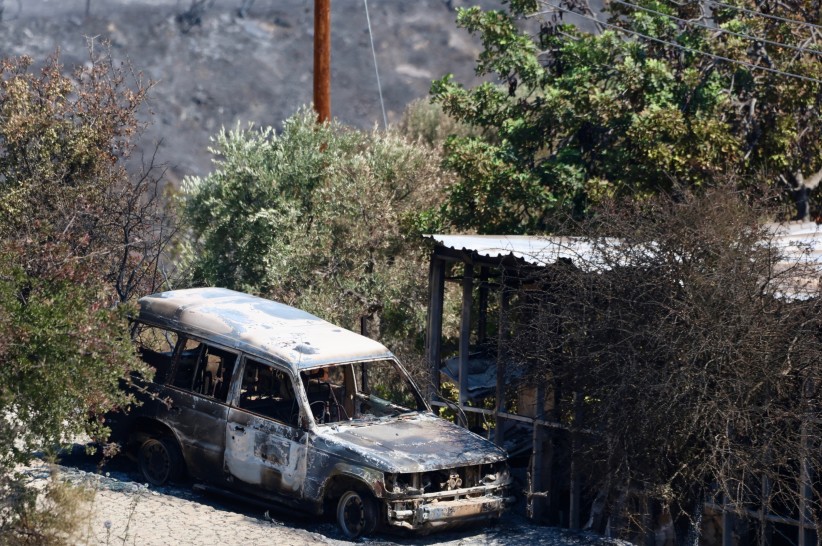
A call for shelter and solidarity
Yiannis Tsouloftas, president of the Limassol EOA, is calling on citizens with summer or vacant homes to open them to families who have lost everything.
"Staying in hotels or camps isn’t a long-term solution," Tsouloftas said in a radio interview. "These people need real shelter, and they’ll need it for months."
The public is urged to contact Civil Defense if they’re able to help, although affected families report a lack of clear guidance so far on how to access this aid.
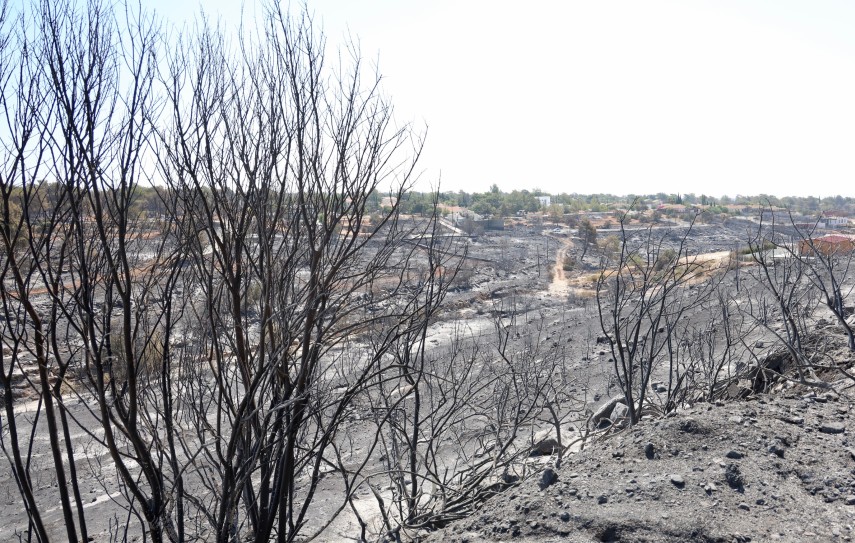
Damage to crops and infrastructure
The Agriculture Department has already begun assessing crop damage across 28 communities, hoping to fast-track compensation. “We’re aiming to start as early as tomorrow,” said Department Head Savvas Hadjimichael.
The fire also crippled basic infrastructure. The Water Development Department is rushing to restore water supplies, while the Electricity Authority (EAC) has managed to bring power back to seven communities, with generators being deployed to others still in the dark.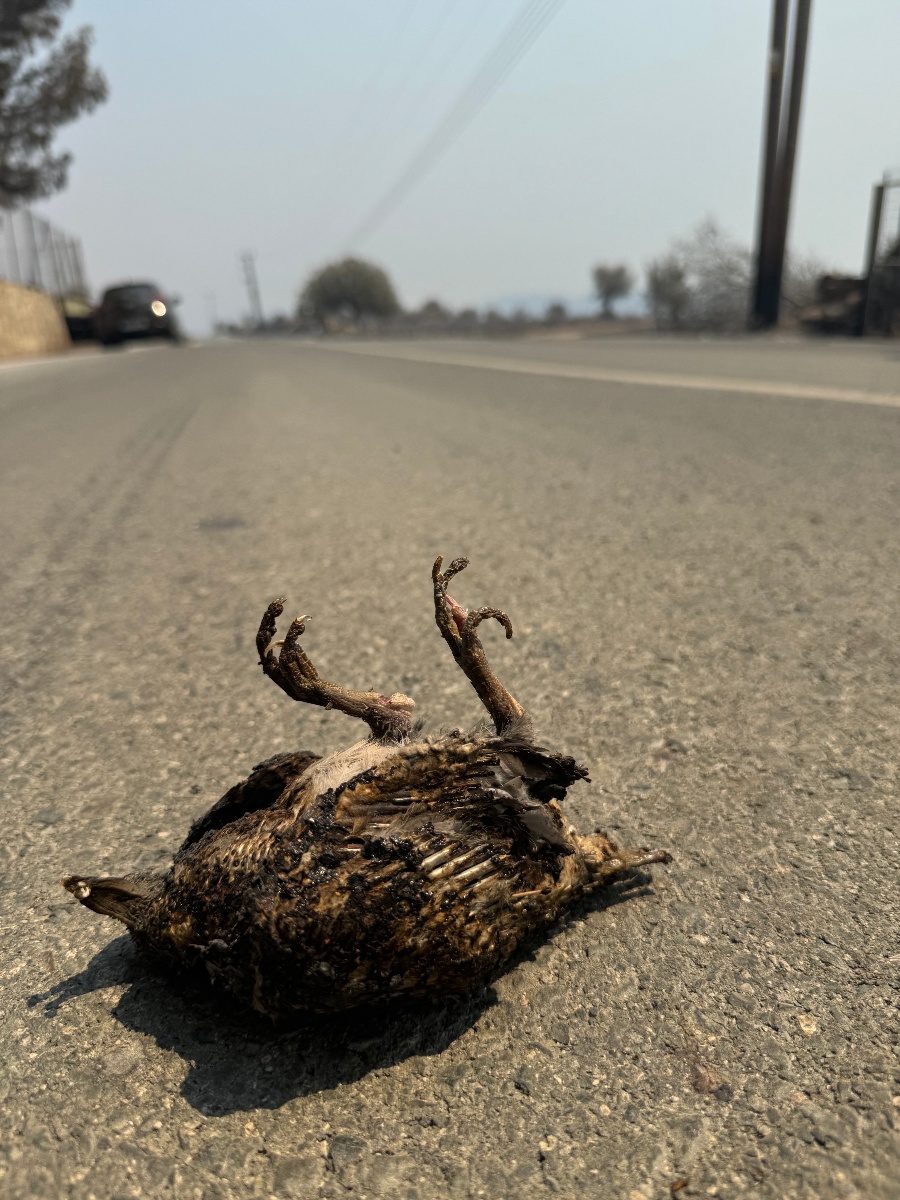
Health services on alert
Health officials say seven people remain hospitalized, two of them with severe burns. Thankfully, their condition is now stable and out of immediate danger.
Emergency health centers remain open in the affected areas, and mobile units continue to visit remote communities. The Health Insurance Organization (HIO) has also relaxed procedures for fire victims needing medication, allowing local pharmacists to fill prescriptions without delay.
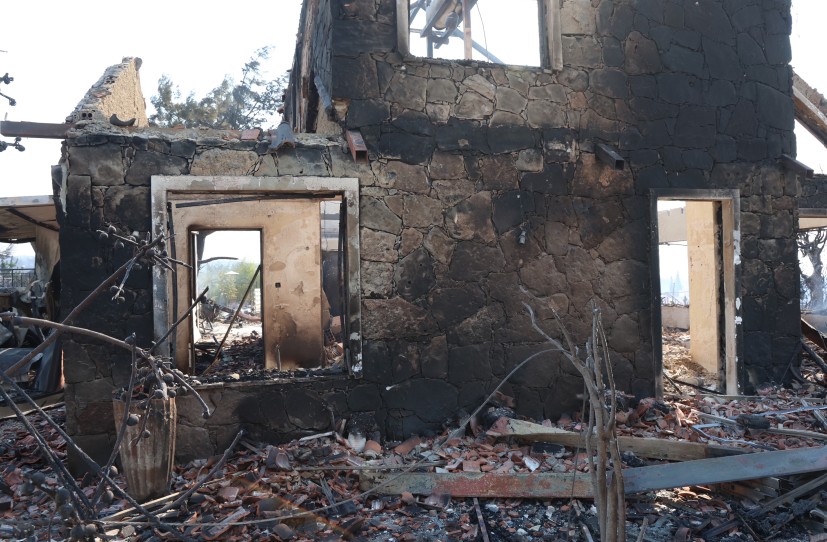
Firefighting efforts, and reflection
Fire Service Chief Nikos Logginos confirmed the fire is now under control but not fully extinguished. “We’ll stay in the area for days,” he said, warning that high temperatures and wind could spark flare-ups.
Greek firefighting forces, sent via the European Civil Protection Mechanism, have joined local teams in mopping up remaining hotspots.
Logginos also admitted that some evacuations were delayed, not due to official failure, but because some residents refused to leave. “We were holding people in our arms trying to get them out,” said Fire Service Spokesman Andreas Kettis.
The chief later issued a public apology. “We prioritized based on the severity of calls. If someone was reported injured, that’s where we went first,” he said.
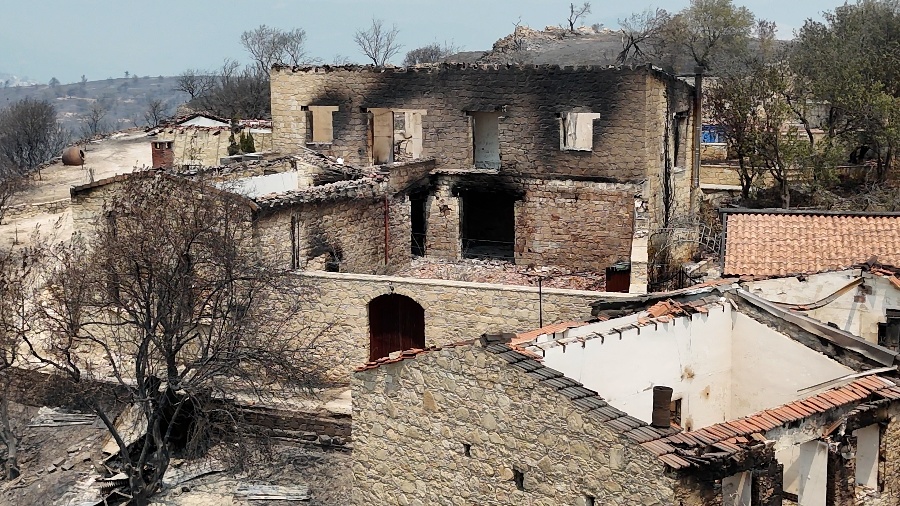
Looking ahead
While the situation on the ground is “very good” compared to the chaos earlier in the week, officials are bracing for a long recovery. Cleanup operations have begun, but restoring normal life will take time, coordination, and compassion.
“It was an unprecedented situation for Cyprus,” said Logginos. “We did everything we could with the resources we had. Now, we must rebuild, together.”
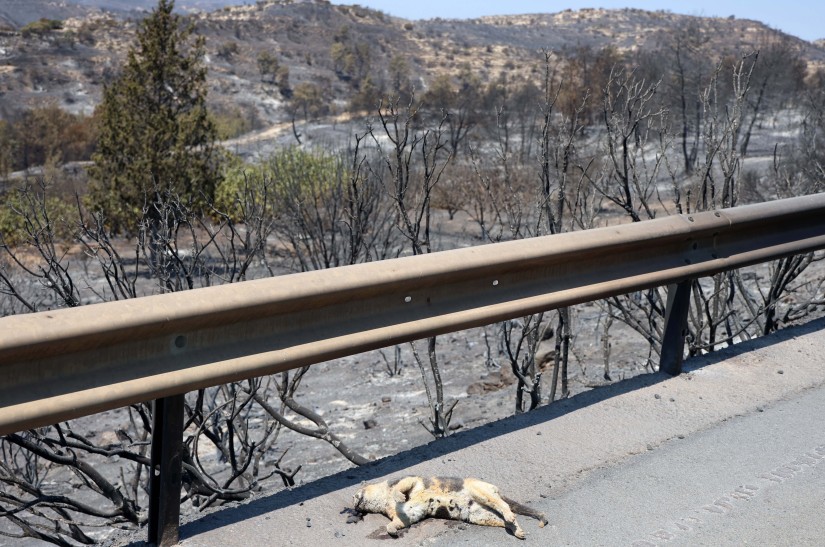
If you want to help:
- Those who can offer housing or support should contact Civil Defense directly.
- For water issues, call WDD Limassol District Office at 25802702.
- Anyone in need of urgent health assistance can visit the nearest health center or local pharmacy.
- Inferno in Limassol leaves two dead, dozens displaced as fire burns 100 square kilometers
- Justice Minister: ''Now is not the time for blame'' -- Actually, it is.
- UPDATE: Cyprus battles rekindling wildfire hotspots after massive blaze scorches over 120 square kilometers (VIDEOS)
- Traffic camera van seen near evacuation zone raises questions during Limassol wildfire































